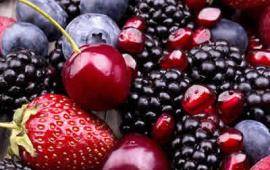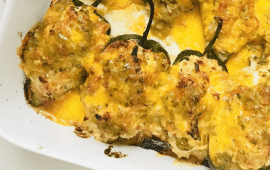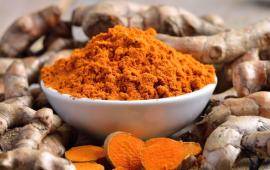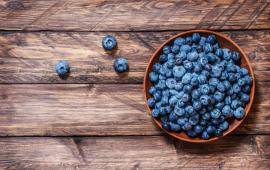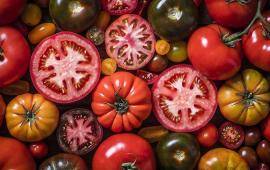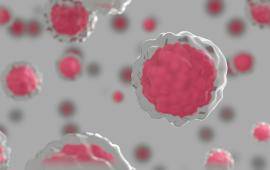
Stomach Cancer Natural Treatment
Integrative treatment of stomach cancer is primarily focused to reduce side effects of chemotherapy, in order to have better tolerance, thus allowing chemotherapy cycles to be completed without interruption.
Chemotherapy kills blood cells. It is necessary to control the immunity with white blood cell count test, since, if the count is less than 3000, chemotherapy is postponed until it reaches these levels. On the other hand, the immune system is important in the control of cancer growth and once the chemotherapy cycles have finished it is necessary to recover the normal values of white blood cells in the shorter possible time. There are Chinese Herbal formulas that boost the immune system. Intravenous vitamin C also helps to strength the immune system.
Side effects of chemotherapy such as nausea, vomiting, fatigue can improve with Chinese Herbal formulas addressed to strengthen the digestive system in conjunction with acupuncture. Intravenous vitamin C improves fatigue associated with the administration of chemotherapy.
In the treatment of cancer, it is very important to remove the cancer stem cells, so surgery is the treatment with the best prognosis. Chemotherapy and radiotherapy are also addressed to kill cancer cells, but they cause significant side effects and weaken the body. Therefore, recovering and strengthening the body after these treatments, helps to prevent cancer recurrences.
The diet plays a very important role to remove toxicity of the treatments and improve the quality of life.
Chinese Herbs for Stomach Cancer
Scientific studies on the anticancer effect of some Chinese herbs in stomach cancer, such as the phenolic alkaloids of the Menispermum dauricum and the Paris polyphylla root, which has an antiproliferative effect on gastric cancer cells. The Patrinia heterophylla has a cytotoxic and apoptosis effect in gastric cancer. The root of the Chinese Pulsatilla, the Actinidiae Chinensis root and the Sophora flavescens herb induce apoptosis of stomach cancer cells.
High levels of vitamin D in the blood are associated with a lower incidence of stomach cancer. Vitamin D has an immune system regulatory effect.
Scientific studies on the anticancer effect of Chinese herbs on stomach cancer:
- Liu, H. Y. et al. 2014. Influences of Menispermum dauricum phenolic alkaloids on EGFR and HER-2 expressions and proliferation of human gastric cancer MGC-803 cells. Zhongyaocai 37: 1654–7.
- Zhang, H. F. et al. 2013. Experimental study of phenolic alkaloids of Menispermum dauricum on proliferation of human gastric cancer cell line SGC-7901. Practice Oncol. J. 27: 116–9.
- Jia, K. et al. 2011. Effects of total saponins of Paris polyphylla root on growth of gastric carcinoma cell line MGC-803 in vitro. Zhongguo Shenghua Yaowu Zazhi 32: 284–6, 290.
- Bao, Y. L. et al. 2012. Effects of Paris polyphylla total saponins on growth of gastric carcinoma cell lines MNK-45 and MGC80-3. Anhui Zhongyi Xueyuan Xuebao 31: 51–5.
- Yang, B. et al. 2013. Induction of cytotoxicity and apoptosis in human gastric cancer cell SGC-7901 by isovaltrate acetoxyhydrin isolated from Patrinia heterophylla Bunge involves a mitochondrial pathway and G2/M phase cell cycle arrest. Asian Pacific J. Cancer Prev. 14: 6481–6.
- Feng, X. Z. et al. 2011. Study of apoptosis in gastric cáncer cells induced by Chinese Pulsatilla root. China Modern Doctor 49, 1–2.
- Wei, P. F. et al. 2005. Studies on the extract of Teng-Li roots induces gastric cancer cell apoptosis. J. Shaanxi TCM Univ. 28: 52.
- Shen, L. et al. 2014. Effect of Actinidia chinensis polysaccharide on apoptosis of MFC and their orthotopic transplanted tumor of gastric cancer. Zhongcaoyao 45: 673–8.
- Zhang, W. L. et al. 2012. Inductive effect of compound Sophora flavescens injection on apoptosis of gastric cáncer SGC-7901 cells and the mechanism. Guangdong Yixue 33: 2061–3.
- Rasul, A. et al. 2011. Induction of mitochondria-mediated apoptosis in human gastric adenocarcinoma SGC-7901 cells by kuraridin and Nor-kurarinone isolated from Sophorae flavescentis. Asian Pacific J. Cancer Prev. 12: 2499–504.
Scientific studies on intravenous vitamin C treatment for stomach cancer
- O'Leary BR et al. 2018 Pharmacological Ascorbate as an Adjuvant for Enhancing Radiation-Chemotherapy Responses in Gastric Adenocarcinoma. Radiat Res. 2018 May;189(5):456-465. doi: 10.1667/RR14978.1. Epub 2018 Mar 16.
Scientific studies on the anticancer action of Vitamin D in stomach cancer
- Li M, Li L, Zhang L et al 1,25-Dihydroxyvitamin D3 suppresses gastric cancer cell growth through VDR- and mutant p53-mediated induction of p21. Life Sci. 2017 Jun 15;179:88-97. doi: 10.1016/j.lfs.2017.04.021. Epub 2017 Apr 29.
Ask for opinion and find an appropriate solution to your problem
ONLINE Doctor Consultation

